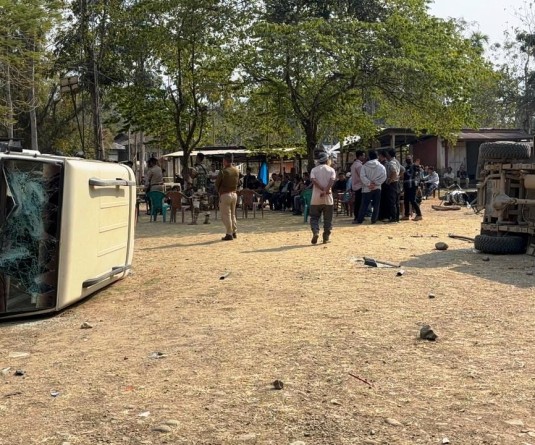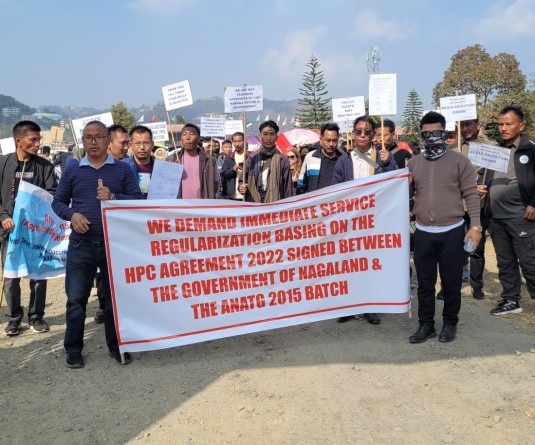
Reiterates objection to 'One Nation, One Student ID’ in representation to Chief Secretary
Kohima, November 1 (MExN): The Naga Students' Federation (NSF) has reiterated its objection regarding the introduction of the Automated Permanent Academic Account Registry (APAAR) in Nagaland and called for keeping its implementation process in abeyance until wider consultation.
In a detailed representation to the State Chief Secretary expressing its concerns, the Federation further informed all educational institutions that the APAAR exercise is not mandatory and, therefore, should not be enforced upon the students and the parents.
Also referred to as 'One Nation, One Student ID,' the NSF had earlier called the APAAR a 'controversial initiative' and stated it raises substantial challenges and poses an unprecedented threat to the rights and privacy of students while unnecessarily burdening educational institutions.
'The Federation reaffirms our staunch opposition to the recent exercise by the Department of School Education regarding the implementation of APAAR, dated October 16, aimed at establishing an Education Ecosystem Registry known as 'EduLocker,' stated the representation appended by NSF President Medovi Rhi and Secretary of Education Temjentoshi.
The APAAR, as proposed by the National Educational Technology Forum (NETF), seeks to assign a unique identification number to every student from pre-primary to higher education, in addition to their existing Aadhaar ID, it pointed out.
Although the government presents this initiative as a solution for the seamless tracking of academic progress and achievements, several significant concerns have come to light, it added.
Accordingly, the NSF once again cited 'Data Security' issues associated with Aadhaar. These issues have not been adequately addressed, and in a time when data breaches are becoming increasingly common, the addition of another layer of data collection and storage without comprehensive security measures is indeed worrisome, it pointed out.
The introduction of the APAAR registry would only exacerbate the workload of teaching faculty and staff, who are already grappling with administrative burdens, potentially impacting the quality of education, it added.
The government's assurance that data will be shared only with relevant government agencies, although stated, remains highly questionable and does not eliminate the possibility of misuse or data breaches, the NSF said.
It further reiterated its strong belief that the consent of parents for APAAR enrollment is insufficient to safeguard the rights and privacy of students.
The proposed centrally functioning District Information for Education portal could also become a potential target for cyberattacks, endangering the personal information of students, it added.
In light of these pressing concerns, the NSF called for a comprehensive reconsideration of the APAAR initiative before any exercise is undertaken by the department for its introduction.
It also appealed to the State Government and the department concerned to call for a wider and comprehensive consultation with all stakeholders, inclusive of parents, students, and educational institutions.
"We strongly advocate for the prioritization of data security, immediate redressal of administrative challenges, and engagement in an inclusive dialogue with all stakeholders," it added.
A consultative and collaborative approach is crucial to ensure the well-being of the students and to maintain the integrity of the education system in Nagaland, it contended.
Accordingly, the NSF advocated for a thorough consultation on the matter to develop a more robust and privacy-conscious solution for tracking students' academic progress, one that is in the best interest of our students and educational institutions.
Till then, it called for the keeping the implementation of the APAAR in abeyance.





